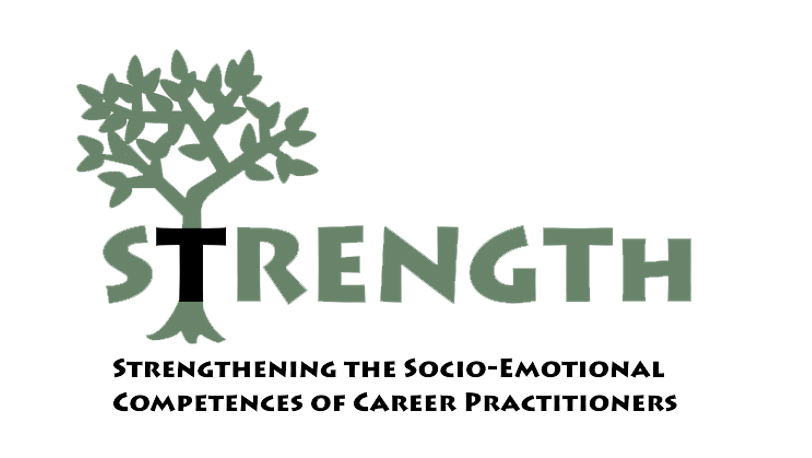Emotional Intelligence




Emotional Intelligence ?
We can be intelligent and know a lot. However, if our Emotional Intelligence Quotient (EQ) is underdeveloped, we are likely to encounter problems again and again in our professional and social environment.
Emotional intelligence (EI) means a set of competencies that enable humans to lead themselves and others well, be pleasant team players, and make the right decisions
Emotional intelligence (EI) means a set of competencies that enable humans to lead themselves and others well, be pleasant team players, and make the right decisions
A story
The importance of Emotional Intelligence can be well illustrated by the following story:
Once upon a time in ancient China, there was a man on a horse. He rode past a man standing on the side of the road. The man on the side of the road asked, “Rider, where are you going?” The man on the horse replied, “I don’t know, ask the horse!”
The relationship between horse and rider is a metaphor for our emotional life.
The horse stands for our Feelings. Usually, we do not pay attention to where our feelings are steering us, i.e. we allow the Horse to carry us wherever it wants. But we can tame and steer the horse. It begins with the fact that we have the horse understood (self-awareness). When we understand it, we learn to communicate and work skillfully to work with him.
Once upon a time in ancient China, there was a man on a horse. He rode past a man standing on the side of the road. The man on the side of the road asked, “Rider, where are you going?” The man on the horse replied, “I don’t know, ask the horse!”
The relationship between horse and rider is a metaphor for our emotional life.
The horse stands for our Feelings. Usually, we do not pay attention to where our feelings are steering us, i.e. we allow the Horse to carry us wherever it wants. But we can tame and steer the horse. It begins with the fact that we have the horse understood (self-awareness). When we understand it, we learn to communicate and work skillfully to work with him.
"The intelligence of the mind is nothing without the intelligence of the heart."
Romain Rolland
The scientific definition
“The ability to observe one’s own feelings and emotions, as well as the feelings and emotions of others, to distinguish and be guided in his or her thinking and actions by the information gained in the process.”
Salovey & Mayer, 1990
Many studies show that individuals with a highly developed EQ are better leaders,more professional, more successful, and are more satisfied overall. Daniel Goleman, who has written two best-selling books on emotional intelligence, wrote: “In a very real sense we have two minds, one that thinks and one that feels.”
In 2015, speaking to The Huffington Post, he said, “People with high emotional intelligence are adaptable, flexible, confident, and work effectively towards their goals. They are resilient and recover quickly from stress.”
Salovey & Mayer, 1990
Many studies show that individuals with a highly developed EQ are better leaders,more professional, more successful, and are more satisfied overall. Daniel Goleman, who has written two best-selling books on emotional intelligence, wrote: “In a very real sense we have two minds, one that thinks and one that feels.”
In 2015, speaking to The Huffington Post, he said, “People with high emotional intelligence are adaptable, flexible, confident, and work effectively towards their goals. They are resilient and recover quickly from stress.”
The good news is:
Emotional intelligence can be trained!
It consists of 5 levels:
- Self-awareness. The ability to become aware of and understand one's own feelings, thoughts, and attitudes.
- Self-Management. The ability to control one's own emotions and to consciously use resources.
- Empathy. The ability to change perspective, i.e., put oneself into individual thoughts and feelings.
- Social skills. The ability to adapt one's own actions to the feelings of others and to build good relationships.
- Motivation: The ability to motivate oneself and others (motivation always has something to do with emotions).
Ongoing Projects (2020-2021):
Strength - EU Project:
Development of Social Intelligence Skills & Training Programs for Career Guidance Practitioners
Cooperation partners:
Marcela Claudia Călineci, Ana Maria Oancea, & Luminita Mitrofan (CMBRAE), Speranța Țibu, Angela Andrei, & Alina Crăciunescu (Centrul National de Politici si Evaluare in Educatie), Soili Rinne, & Antti Viiman (Häme University of Applied Sciences), Mary Tountopoulou, Varvara Pantidou, Dimitrios Adam, & Fotini Vlachaki (ISON Psychometrica), Teresa Maltese, Monica Miglionico, & Maria Santarcangelo (Studio Risorse), João Constâncio, Catarina Madureira, & Sofia Rego (União das Freguesias de Gondomar Valbom e Jovim), Peter C. Weber, Rebeca Garcia Murias, & Gundula Gwenn Hiller (University of Applied Labor Studies, Mannheim).
